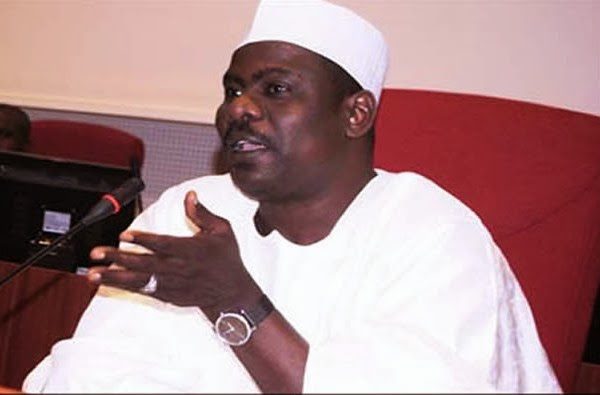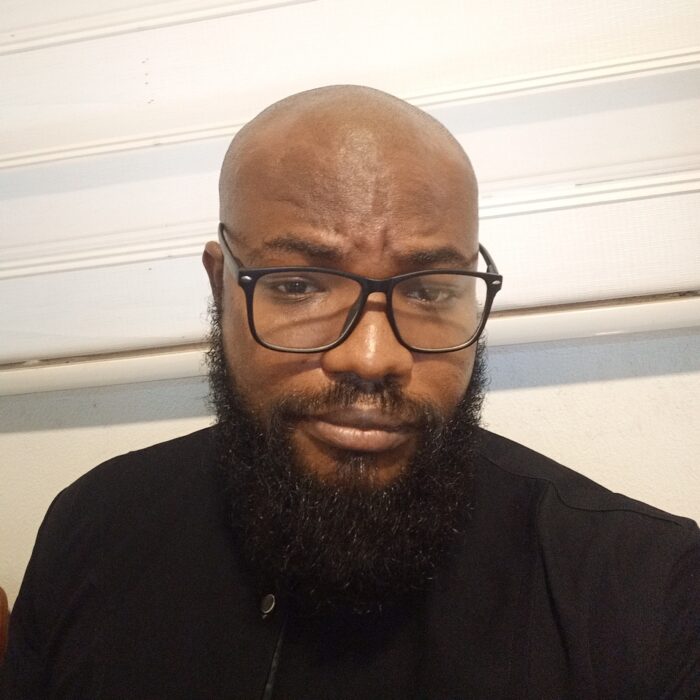Global Issues
The Vatican’s “LGBTQ+ Blessing” and Future of African Marriage -By Caleb Onah
This conversation will undoubtedly play out in churches, families, and public discourse, shaping the continent’s social landscape for years to come and hope it plays out for the good of humanity and the purpose for which Christ built His church.

On December 18, 2023, the Vatican announced that Catholic priests can bless same-sex couples in a landmark ruling approved by Pope Francis. It was revealed this does not mean that same-sex couples can be married in the Catholic Church, as the Vatican still believes that marriage is the union between a man and a woman.
It was stated, the blessings are allowed as long as they are not in the context of “liturgies or sacrament” at the same time as a civil union, using set rituals, or with the clothing and gestures that belong in a wedding. The bombshell which many have asserted is significant for the LGBTQ+ community, as it is a signal from the religious hierarchy that LGBTQ+ folks deserve dignity and respect.
The United Protestant Church of France, the Union of Protestant Churches of Alsace and Lorraine, and all 20 Lutheran, United, and Reformed churches within the Evangelical Church in Germany perform blessings of same-sex before now.
The Presbyterian Church USA General Assembly Permanent Judicial Commission ruled in 2006 that same-sex ceremonies are not forbidden, as long as they are not considered to be the same as marriage services. Overall, a solid majority of white mainline Protestants (62%) now favour allowing gays and lesbians to wed, with just 33% opposed.
Earlier an overall of solid majority of white mainline Protestants (62%), favour allowing gays and lesbians to wed, with just 33% opposed, according to a 2015 Pew Research Centre survey. A similar share of (63%) say there is “no conflict” between their religious beliefs and homosexuality.
However, it was observed the Catholic Church’s stance on same-sex marriages or unions has not changed, and the Church insists that marriage is only between a man and a woman, for the purpose of having children. It was discovered that, Vatican has maintained in the declaration titled Fiducia supplicans that its moral teaching on the sinfulness of homosexuality has not changed.
But, the Vatican’s faith department, which wrote the document, was quoted in an introduction as saying it was “a broadening and enrichment” of the Vatican’s stance on blessings,” based on the pastoral vision of Pope Francis,” who wants a Church open to all.
Hence, it is important to note that the Catholic Church’s stance on same-sex marriage is not unique, as many other religious organisations also do not recognise same-sex marriage. For example, the Presbyterian Church USA General Assembly Permanent Judicial Commission ruled earlier in 2006 that same-sex ceremonies are not forbidden, as long as they are not considered to be the same as marriage services.
What does this mean to Africans?
This decision brings the Catholic Church face-to-face with the complex realities of Africa religion. Across the continent, cultural and religious norms often view homosexuality negatively, and legislation in many countries criminalises same-sex relationships. While pockets of progress are emerging, like South Africa’s legalisation of same-sex marriage in 2006, social stigma and discrimination remain prevalent.
In Africa, homosexuality is widely viewed as a sin, an abomination, or a Western import and same-sex relations are punishable by law in many countries. The announcement has sparked debates in Africa, and at least one bishop has voiced dismay about it.
However, African activists have praised Francis’ decision to let Catholic priests bless same-sex with hopes that the pope’s gesture could ease anti-LGBTQ sentiment and oppression on the continent.
Predictably, reactions to the new ruling have been mixed. Some African Catholics welcome the move as a gesture of inclusivity and respect for LGBTQ+ individuals. Reports published by the Voice of America (VOA) on 20th, December, 2023 revealed Ohiri, a Catholic transgender woman who has faced serious discrimination and threats to her life related to her sexuality.
She said she couldn’t have hoped for better news, but acknowledged there would be resistance. “It’s not going to be an easy thing,” she said. “I’m very sure that African people will definitely protest against it. They mostly use religion against us, the queer people. I feel like the pope making the decision is … I feel like it’s good for queer people. I’m having a good reaction [feeling] about it.”
The reports has it that other African activists also praised Francis’ decision to let Catholic priests bless same-sex couples, with hopes that the pope’s gesture could ease anti-LGBTQ sentiment and oppression on the continent.
They see it as an opportunity to bridge the gap between the Church’s teachings and the lived experiences of many marginalised communities. However, others express reservations, fearing that blessings for same-sex couples could undermine the sanctity of African traditional marriage and open the door to further changes in Church doctrine. Some conservative bishops have already voiced their opposition, questioning the decision’s compatibility with African cultural values and its potential impact on social cohesion.
What the future holds for Africans
As I read through various dailies across the world, while there are a lot of doubts on blessing same sex marriages in Africa, the coming months and years will further reveal how this new policy unfolds in Africa. Individual priests will have to navigate the nuances of the guidelines, making case-by-case decisions within their specific communities. Whether this represents a step towards wider acceptance of same-sex relationships or remains a limited gesture of recognition remains to be seen.
Personally, I know one thing is certain: the Catholic Church’s decision on blessing same-sex couples has ignited a crucial conversation about sexuality, faith, and tradition in Africa which will test our knowledge, stance and understanding of the Holy Scripture.
This conversation will undoubtedly play out in churches, families, and public discourse, shaping the continent’s social landscape for years to come and hope it plays out for the good of humanity and the purpose for which Christ built His church.




















